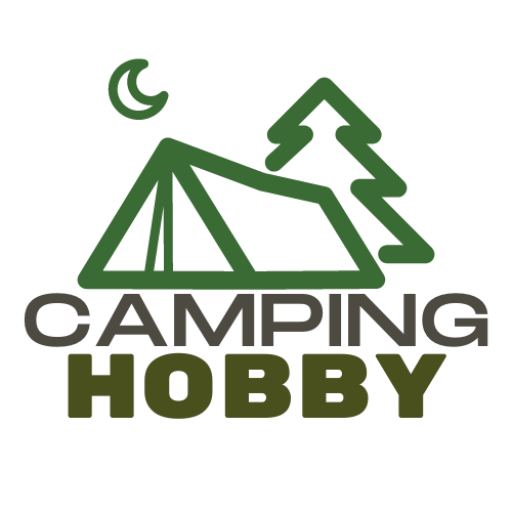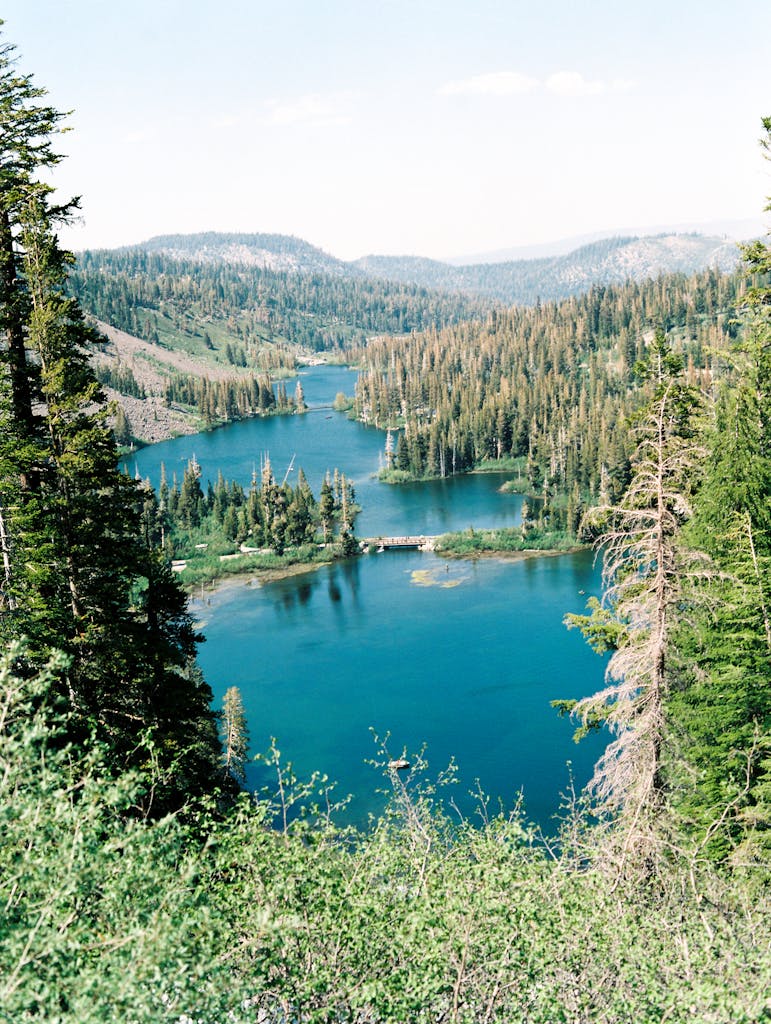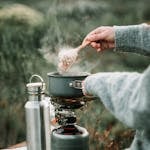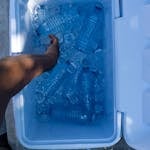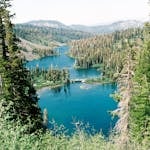Camping is a popular activity for outdoor enthusiasts all around the world. It offers a unique opportunity to disconnect from technology, immerse oneself in nature, and create lasting memories. Whether you’re an experienced camper or new to the activity, camping provides a chance to explore the great outdoors and experience the beauty of nature firsthand.
One of the main benefits of camping is the opportunity to disconnect from technology and enjoy the simplicity of nature. In today’s fast-paced world, we are constantly bombarded with screens and notifications. Camping allows us to take a break from this constant stimulation and instead focus on the natural world around us. It provides a chance to slow down, breathe in fresh air, and appreciate the beauty of our surroundings.
Top Benefits of Camping: From Health Benefits to Family Bonding
Camping offers a wide range of benefits, both for our physical and mental health. Spending time outdoors has been proven to reduce stress levels, improve mood, and increase overall well-being. When we camp, we are exposed to natural light, fresh air, and the sounds of nature, all of which have a positive impact on our mental health.
In addition to the individual benefits, camping also provides an opportunity for families to bond and create lasting memories together. When we camp with our loved ones, we have the chance to disconnect from our busy lives and spend quality time together. Whether it’s sitting around a campfire, going on hikes, or simply enjoying each other’s company in the great outdoors, camping allows families to strengthen their relationships and create lifelong memories.
Finding the Best Campgrounds Near You: Tips and Tricks
When it comes to finding the best campgrounds near you, there are several tips and tricks that can help you make the most informed decision. One of the best resources for finding campgrounds is the internet. There are numerous websites and apps that provide detailed information about campgrounds, including reviews, photos, and amenities. These resources can help you narrow down your options and find the perfect campground for your needs.
Another great way to find the best campgrounds near you is to ask for recommendations from friends, family, or fellow outdoor enthusiasts. They may have personal experiences and insights that can help you make an informed decision. Additionally, local outdoor stores or visitor centers often have information about nearby campgrounds and can provide valuable recommendations.
When choosing a campground, it’s important to consider factors such as location, amenities, and accessibility. Think about what you want to do during your camping trip and choose a campground that is conveniently located near the activities you’re interested in. Consider the amenities that are important to you, such as showers, toilets, and picnic areas. Finally, think about accessibility and whether the campground is suitable for your needs, whether you’re camping with children or have mobility restrictions.
Types of Campgrounds: From National Parks to Private Campsites
There are several different types of campgrounds available, each with its own pros and cons. National parks are a popular choice for camping enthusiasts, as they offer stunning natural landscapes and a wide range of recreational activities. However, national parks can be crowded during peak seasons and may require advanced reservations.
State parks are another option for camping enthusiasts. These parks often offer similar amenities to national parks but may be less crowded and more accessible. They are a great choice for those looking to explore nature without the crowds.
Private campsites are another option for campers. These campsites are often owned by individuals or companies and offer a range of amenities, from basic tent sites to fully equipped RV sites. Private campsites can be a good option for those looking for more comfort and convenience during their camping trip.
What to Look for in a Campground: Amenities, Location, and Safety
When choosing a campground, there are several factors to consider to ensure a comfortable and enjoyable experience. First and foremost, consider the amenities that are important to you. Some campgrounds offer basic amenities such as toilets and picnic tables, while others may have showers, laundry facilities, and even swimming pools. Think about what amenities are essential for your camping trip and choose a campground that meets your needs.
Location is another important factor to consider when choosing a campground. Think about what activities you want to do during your camping trip and choose a campground that is conveniently located near those activities. For example, if you’re interested in hiking, choose a campground that is located near hiking trails. Additionally, consider the proximity to grocery stores, gas stations, and other services that you may need during your camping trip.
Safety is also a crucial consideration when choosing a campground. Research the area and check for potential hazards such as wildlife or natural disasters. Make sure the campground has proper safety measures in place, such as fire pits and fire extinguishers. Additionally, consider the accessibility of the campground and whether it is suitable for your needs.
Packing for Your Camping Trip: Essential Gear and Supplies

When it comes to packing for your camping trip, it’s important to pack light and only bring what you need. Here is a list of essential gear and supplies to pack for your camping trip:
– Tent: Choose a tent that is suitable for the number of people in your group and the weather conditions you’ll be camping in.
– Sleeping bag: Choose a sleeping bag that is appropriate for the temperature range you’ll be camping in.
– Cooking supplies: Bring a portable stove or grill, cooking utensils, pots and pans, and food storage containers.
– Food: Plan your meals ahead of time and bring non-perishable food items that are easy to prepare.
– Water: Bring enough water for drinking, cooking, and cleaning.
– Clothing: Pack appropriate clothing for the weather conditions, including layers for colder temperatures.
– Personal items: Don’t forget essentials such as toiletries, sunscreen, insect repellent, and a first aid kit.
– Lighting: Bring a flashlight or headlamp, as well as extra batteries.
– Entertainment: Pack books, games, or other forms of entertainment to enjoy during downtime.
Setting Up Camp: Tips for Pitching a Tent and Building a Fire
Setting up camp is an important part of the camping experience. Here are some tips for pitching a tent and building a fire:
– Choose a flat and level area to pitch your tent. Clear away any rocks or debris that may be in the way.
– Lay out your tent and assemble the poles according to the instructions. Start by staking down the corners of the tent and then work your way around, making sure the tent is taut.
– Once your tent is set up, consider using a groundsheet or tarp underneath to protect the floor of your tent from moisture and wear.
– When building a fire, choose a designated fire pit or ring if available. Clear away any flammable materials from the area around the fire pit.
– Gather dry wood and kindling to start your fire. Start with small pieces of kindling and gradually add larger pieces of wood as the fire grows.
– Always follow safety guidelines when building a fire and never leave it unattended. Make sure to fully extinguish the fire before leaving your campsite.
Fun Activities to Do While Camping: Hiking, Fishing, and More
Camping offers a wide range of fun activities to enjoy while immersing yourself in nature. Here are some ideas for activities to do while camping:
– Hiking: Explore nearby trails and enjoy the beauty of nature on foot. Make sure to bring appropriate footwear and stay hydrated.
– Fishing: If you’re camping near a lake or river, try your hand at fishing. Check local regulations and make sure to obtain any necessary permits.
– Stargazing: Away from the city lights, camping provides the perfect opportunity to stargaze. Bring a star chart or download a stargazing app to help identify constellations.
– Wildlife spotting: Keep an eye out for wildlife such as birds, deer, or even bears. Remember to observe from a safe distance and never feed or approach wild animals.
– Campfire cooking: Use your campfire or portable stove to cook delicious meals. Try cooking over an open flame and enjoy the unique flavors of campfire cooking.
– Nature photography: Capture the beauty of nature with your camera or smartphone. Experiment with different angles and lighting to create stunning photographs.
Tips for a Safe and Enjoyable Camping Experience: From Wildlife Safety to Leave No Trace
To ensure a safe and enjoyable camping experience, it’s important to follow certain guidelines and principles. Here are some tips for a safe and enjoyable camping experience:
– Wildlife safety: Keep a safe distance from wildlife and never feed or approach them. Store food securely to avoid attracting animals to your campsite.
– Leave No Trace: Practice Leave No Trace principles by leaving your campsite better than you found it. Pack out all trash and dispose of it properly.
– Fire safety: Follow fire safety guidelines and never leave a fire unattended. Make sure to fully extinguish the fire before leaving your campsite.
– Respect nature: Treat the natural environment with respect by staying on designated trails, not disturbing plants or wildlife, and following any posted rules or regulations.
– Be prepared: Bring appropriate gear, clothing, and supplies for the weather conditions. Check the weather forecast before your trip and be prepared for changes in weather.
– Stay hydrated: Drink plenty of water and stay hydrated, especially in hot weather or during physical activities such as hiking.
– First aid: Pack a first aid kit and familiarize yourself with basic first aid procedures. Be prepared for minor injuries or illnesses that may occur during your camping trip.
Why Camping is an Unforgettable Experience for All Ages
In conclusion, camping is a great way to explore the outdoors and create unforgettable experiences. It offers a chance to disconnect from technology, enjoy nature, and spend quality time with loved ones. Whether you’re an experienced camper or new to the activity, camping provides a unique opportunity to immerse yourself in the beauty of the natural world.
From the physical and mental health benefits to the opportunity for family bonding, camping offers a wide range of benefits for all ages. By following safety guidelines, choosing the right campground, and packing essential gear and supplies, you can ensure a safe and enjoyable camping experience. So why not give camping a try and create your own unforgettable memories in the great outdoors?
FAQs
What are campgrounds?
Campgrounds are outdoor areas where people can set up tents or park RVs to spend the night. They usually have amenities such as restrooms, showers, and fire pits.
What are some popular campgrounds near me?
The popularity of campgrounds varies by location. You can use online resources such as Google Maps or camping apps to find campgrounds near you and read reviews from other campers.
What amenities do campgrounds typically offer?
Campgrounds usually offer amenities such as restrooms, showers, fire pits, picnic tables, and sometimes even electricity and water hookups for RVs.
What should I bring to a campground?
You should bring camping gear such as a tent, sleeping bag, and cooking supplies. You may also want to bring bug spray, sunscreen, and appropriate clothing for the weather.
Can I bring my pet to a campground?
Many campgrounds allow pets, but it’s important to check the specific rules and regulations of the campground before bringing your pet. Some campgrounds may require pets to be on a leash or have restrictions on certain breeds.
How much does it cost to camp at a campground?
The cost of camping at a campground varies depending on the location and amenities offered. Some campgrounds may be free, while others may charge a nightly fee ranging from $10 to $50 or more.
Do I need to make a reservation to camp at a campground?
It’s recommended to make a reservation at a campground, especially during peak camping season. Some campgrounds may require reservations, while others operate on a first-come, first-served basis.
